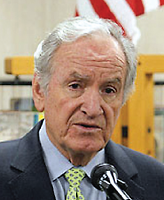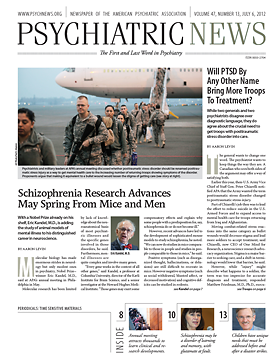Both houses of Congress have taken steps to ensure that the Food and Drug Administration (FDA) has the funds to evaluate and approve new medications.
The Prescription Drug User Fee Act (PDUFA)—enacted in 1992 and renewed in 1997, 2002, and 2007—is set to expire in September. It authorizes the FDA to collect “user fees” from companies that produce human drug and biological products. The program has been a success, giving the FDA the staff it needs to move drug candidates along more quickly and reducing approval times dramatically by increasing the number of drug reviewers available.
That success may be why Congress is sparing no time to ensure that the system keeps working. On May 24, the Senate passed the FDA Innovation and Safety Act (S 3187) by a vote of 96-1; the bill included reauthorization of PDUFA. It was sponsored by the bipartisan team of Sens. Mike Enzi (R-Wyo.) and Tom Harkin (D-Iowa). Sen. Bernie Sanders (I-Vt.) cast the lone vote against approval, saying that the legislation did not go far enough: “The most pressing prescription drug issue in our country today is that Americans pay, by far, the highest prices in the world for their medicine, and millions of people cannot afford the medications their doctors prescribe. I voted against this bill because it does far too little to address this crisis while it perpetuates a prescription-drug system that continues to fail the American people,” Sanders said.
On May 30, the House approved by a vote of 387-5 the FDA Reform Act of 2012 (HR 5651), which included reauthorization of PDUFA. The act was introduced by a bipartisan group consisting of Reps. Fred Upton (R-Mich.), Henry Waxman (D-Calif.), Joseph Pitts (R-Pa.), Frank Pallone Jr. (D-N.J.), Joe Barton (R-Texas), and John Dingell (D-Mich.).
Both the Senate and House bills also reauthorized the Medical Device User Fee and Modernization Act and established new user-fee statutes, the Generic Drug User Fee Act (GDUFA) and the Biosimilars User Fee Act (BsUFA).
The GDUFA calls for the generic-drug industry to pay $299 million annually in user fees for the next five years to enable the FDA’s Office of Generic Drugs to hire the scientific expertise needed to provide timely approval of generic medicines, just as the PDUFA has done for new drugs. According to the Generic Pharmaceutical Association, a manufacturers’ organization, the new fees also will boost spending for generic manufacturing facility inspections, which are required before new generics can be approved.
The BsUFA will provide fees for approval of a new class of products created as part of the Patient Protection and Affordable Care Act. Biosimilar drugs, according to the FDA, are those that may be demonstrated to be “biosimilar” if data show that, among other factors, the product is “highly similar” to an already approved biological product. The FDA will require licensed biosimilar and interchangeable biological products to meet exacting standards of safety and efficacy.
Overall, the Senate and House bills are comparable, and analysts say they will raise $6.4 billion in user fees for the FDA over five years. Congress is expected to resolve differences between the two bills in time to deliver a final version to President Obama before the July 4 congressional recess.
Even those who will be paying the fees say the arrangement works. The drug-company trade group Pharmaceutical Research and Manufacturers of America (PhRMA) said in an April press release that the PDUFA program has enabled the FDA to better keep pace with the rapid increase in the number and complexity of new medicines entering the review pipeline.
“PDUFA has facilitated the hiring of hundreds of additional review staff at the FDA, helped reduce review times for new drug applications and biologics license applications, improved the efficiency of the review process for priority new molecular entities, and, perhaps most importantly, provided patients with access to more than 1,100 new medicines over the past 18 years,” the organization said.


